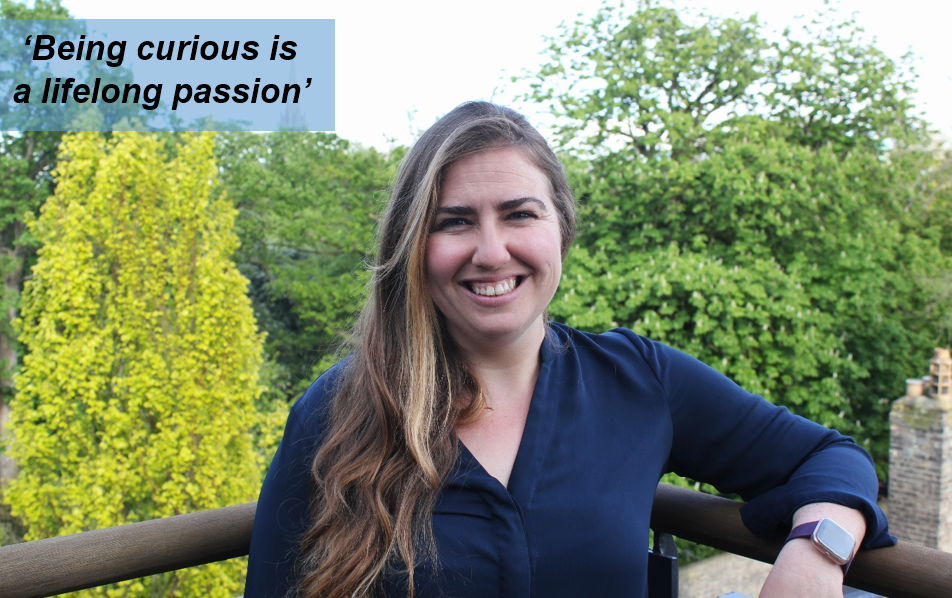An Interview with Dr Giovanna Zinzalla
Alecia is a postdoctoral researcher in the Khaled group in the Department of Pharmacology. Having only moved to Cambridge in 2019 she has been incredibly successful already publishing an arsenal of manuscripts, including one analysing the transcriptional profiles of single cells purified from human breast milk.
Originally, from Australia, Alecia studied for her PhD at the University of Western Australia. She then moved to the Institute of Stem Cell Research at the Helmholtz Center Munich, where she was awarded the inaugural International Society for Research in Human Milk and Lactation Postdoctoral Fellowship.
Who are you and what do you work on?
I’m Alecia-Jane Twigger and I work as a postdoc in the Khaled group at the Department of Pharmacology. My work centres around understanding how different factors such as pregnancy and lactation influence mammary gland biology and breast cancer risk.
What do you love about your job?
I love creatively solving problems and the sense of community there is locally and internationally.
How/why did your research lead you to Cambridge?
I met my current group at an international conference. I was super impressed by their published work and was very lucky at how open they were to teaching me (a stranger) a new technique. We launched a collaboration, where I visited Cambridge many times….until one day I was invited to come and work in a more long term capacity. Let’s just say I feel very grateful to be here, surrounded by some of the greatest science in the world.
Other than science what is most important for you in life?
Acknowledging the privileges that this life has offered so far is the most important thing. We are so lucky to be here, to have these opportunities and to be free to make our own choices. Building a strong support network outside of work is also so important. These people will be there for you when your experiments fail and help you keep going. To me science and being curious is a lifelong passion and it has to be supported by a three-dimensional life made up of family, friends, hobbies and fun!
Do you have any advice to early-career women scientists?
If you see a scientific poster or presentation that floors you….introduce yourself. Tell the presenter about your work. Be brave. You might form an invaluable connection or just have a great conversation. I think everyone is flattered when people take an interest in their work…even well-established PIs.
What/Who first sparked your interest in Science?
In high school we had to design an experiment to test growing conditions of plants. I ended up with a mouldy seed in a cupboard and a thriving plant on a windowsill. But I liked finding answers to questions through experimentation.
When did you decide to become a research scientist?
I wasn’t too sure until I did a summer internship. After a few weeks of endlessly pipetting samples for protein extraction and running a few westerns, I was in love.
If you were to choose a laboratory superpower what would it be?
Asking the most poignant questions at conferences or talks outside of my field.
If you were to choose a laboratory superpower what would it be?
Asking the most poignant questions at conferences or talks outside of my field.
How would you like to be remembered?
I would like to be remembered as someone who conducts cutting edge science in a way that has never been done before. But also, as someone who is kind. Imposter syndrome is real, but I hope I can leave it behind and support others to shine.

